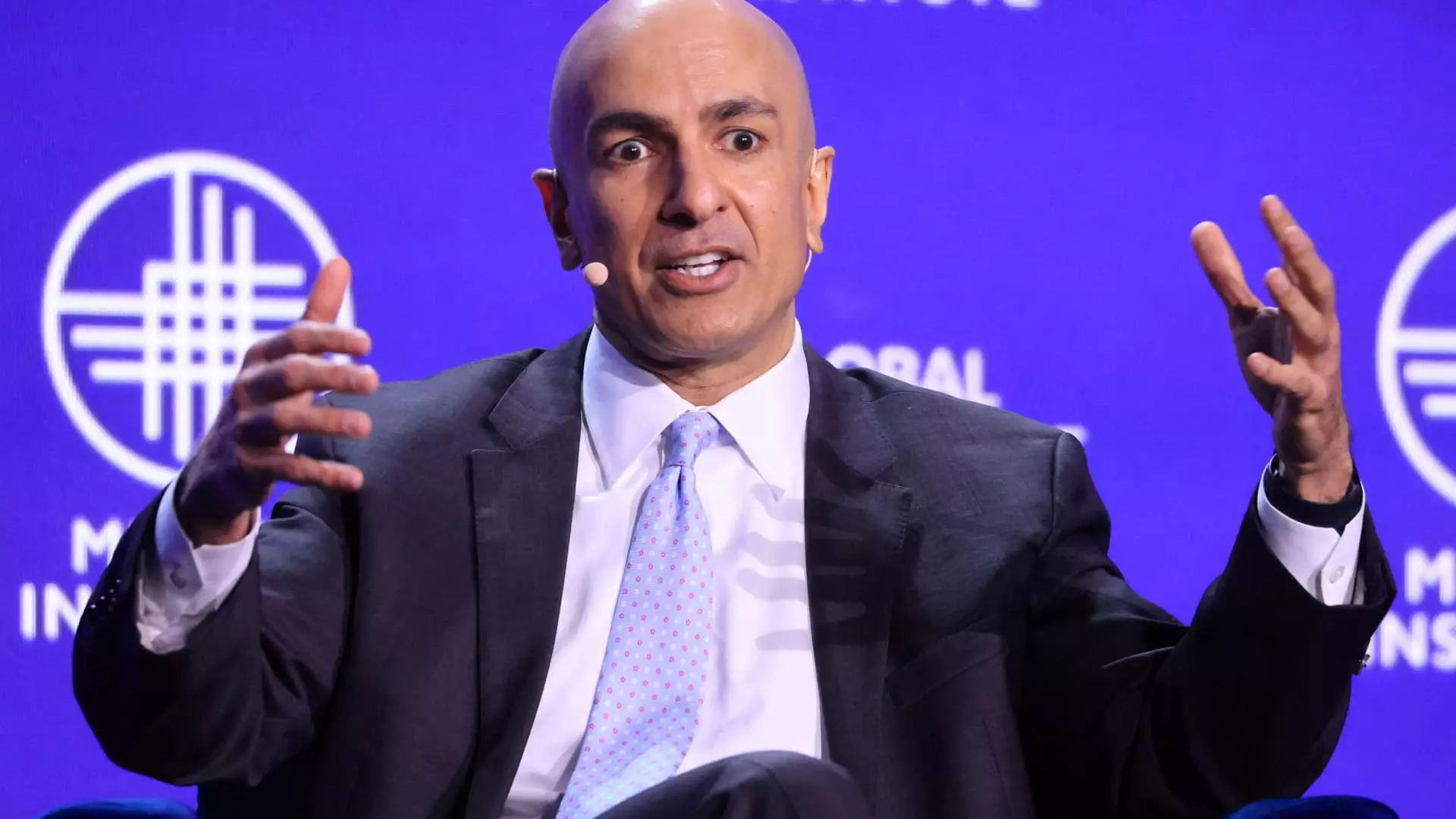In recent discussions, Minneapolis Federal Reserve President Neel Kashkari shed light on the potential repercussions of President-elect Donald Trump’s tariff strategies on inflation. This issue is particularly pertinent in the context of the ongoing trade war that erupted during Trump’s first term, primarily marked by the imposition of tariffs on Chinese goods. This battle of trade not only elicited retaliatory tariffs from China but also raised concerns about the broader implications for the U.S. economy and global trade relations. As nations engage in tit-for-tat tariff impositions, Kashkari warns that this cycle could destabilize long-term economic forecasts and heighten inflationary pressures.
Kashkari’s expert stance indicates that while individual tariffs may not significantly alter inflation in the short term, the aggregate effect of escalating trade tensions could prove detrimental. The essence of his argument revolves around the uncertainty that arises from retaliatory measures. If countries respond to trade barriers with their own tariffs, it creates a complex web of economic consequences that can lead to higher prices for consumers and businesses alike. Thus, while one-off tariffs might appear manageable, the potential for continuous escalation is where real concern lies.
Despite the looming threat of tariffs, Kashkari pointed out that steps have been taken to combat inflation, which has recently begun its slow descent from the pandemic highs. The Federal Reserve’s strategy, including a recent series of interest rate cuts, is designed to keep inflation anchored close to the 2% target. Kashkari remains cautiously optimistic, suggesting that although progress has been made, vigilance is necessary. The Fed’s actions are all contingent on macroeconomic data, and he hinted at the possibility of further cuts depending on the forthcoming economic indicators.
Kashkari also addressed the political pressures that might influence the Fed’s policy-making, especially in light of Trump’s calls for more direct involvement in the Federal Reserve’s operations. The fear that political motives could intrude upon economic decision-making highlights a critical aspect of the Fed’s mandate: maintaining a level of independence insulated from electoral cycles. Despite the political climate, Kashkari maintains a staunch belief in the Fed’s commitment to pursuing policies that serve the economic interests of the country, rather than succumbing to external pressures.
The uncertainty surrounding Trump’s trade policies and the potential resurgence of inflation necessitates a cautious and measured approach from both economic policymakers and business leaders. The evolving nature of international trade and its consequences on domestic economics calls for an extensive analysis of not just tariffs, but the overall trade framework. Economists must remain vigilant and proactive in addressing changes as the global economic landscape shifts. Kashkari’s insights serve as a reminder of the delicate balance between trade, inflation, and economic stability, urging stakeholders to engage in informed and strategic planning moving forward.
The ongoing dialogue about tariffs should not be viewed merely as political rhetoric but rather as a significant factor influencing the economic fabric of the nation.

